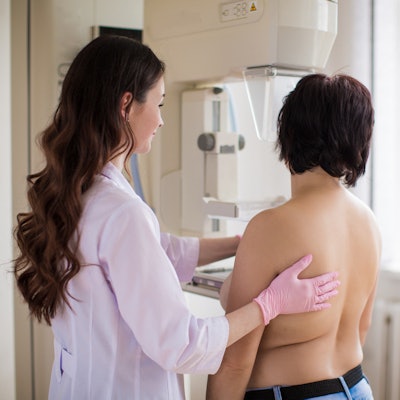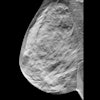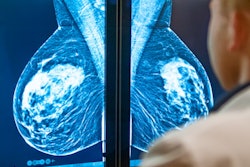
Women with a genetic disorder that increases their risk of breast cancer did not show significant increases in psychological distress related to mammography screening, according to research published May 8 in Familial Cancer.
The survey study, led by Dr. Ashley Crook from Royal North Shore Hospital in Australia, studied women with neurofibromatosis type 1 (NF1) and found that their average scores for cancer worry and anxiety decreased over time as they were screened. However, some women did experience negative aspects of screening and barriers to reattendance at annual breast screening appointments.
"As some women with NF1 exhibited clinical levels of psychological distress prior to screening, efforts to identify those at risk and additional support to address concerns and expectations throughout the breast screening process may be beneficial," Crook and her team wrote.
NF1, also called von Recklinghausen's disease, is a genetic disorder in which people develop benign tumors of nerves and skin and areas of abnormal skin color.
Women with NF1 have an increased risk of developing early breast cancer and have a poorer prognosis compared with the general population. International clinical guidelines recommend regular screening in women with NF1 starting from 30 to 35 years of age.
While harms of annual breast screening such as pain or discomfort, false-positive results, and psychological issues have been debated, the authors said the benefits of screening outweigh these harms.
"This [focus on harms] can negatively impact future screening attendance, meaning patients do not access the benefits of regular screening," they wrote.
For the study, 28 women with NF1 were asked to complete questionnaires on their psychological well-being and patient experience that were administered across five time points, before and after their initial and second-round annual breast screening visits. Twenty-seven women underwent first-round screening (though one did not attend their screening results appointment) while 22 underwent second-round screening.
Satisfaction with breast screening procedures was high. About 80% of women who underwent first-round screening and about 78% who underwent second-round screening reported being "quite" or "very" satisfied with MRI, mammogram, and ultrasound.
About 76% of the women also rated their experience of all screening modalities as "not at all" or only "a little" embarrassing, uncomfortable, painful, worrying, or distressing.
Despite the lack of a negative psychological impact, only half of the respondents who undertook the first round of breast screening reported that they were reassured by their results, regardless of the screening modality. However, most women who attended a second round of breast screening were reassured.
"Surprisingly, recall and biopsy were not associated with increased psychological distress," the authors noted.
About a third of the women reported discomfort or pain during mammograms, and some respondents reported "fear of their results" as a potential barrier, despite high satisfaction with the screening process.
The researchers suggested patient concerns may be alleviated by clinician awareness in promoting better engagement in care, such as utilizing brief, tailored patient-reported experience. Outcome measures could also be used to identify those at risk of psychological distress.
"In addition, promotion of patient engagement through genetic counseling, access to psychological services, plus targeted educational resources may encourage patients to harbor more realistic expectations of the screening process and encourage them to adhere to subsequent rounds of breast screening," they wrote.




















